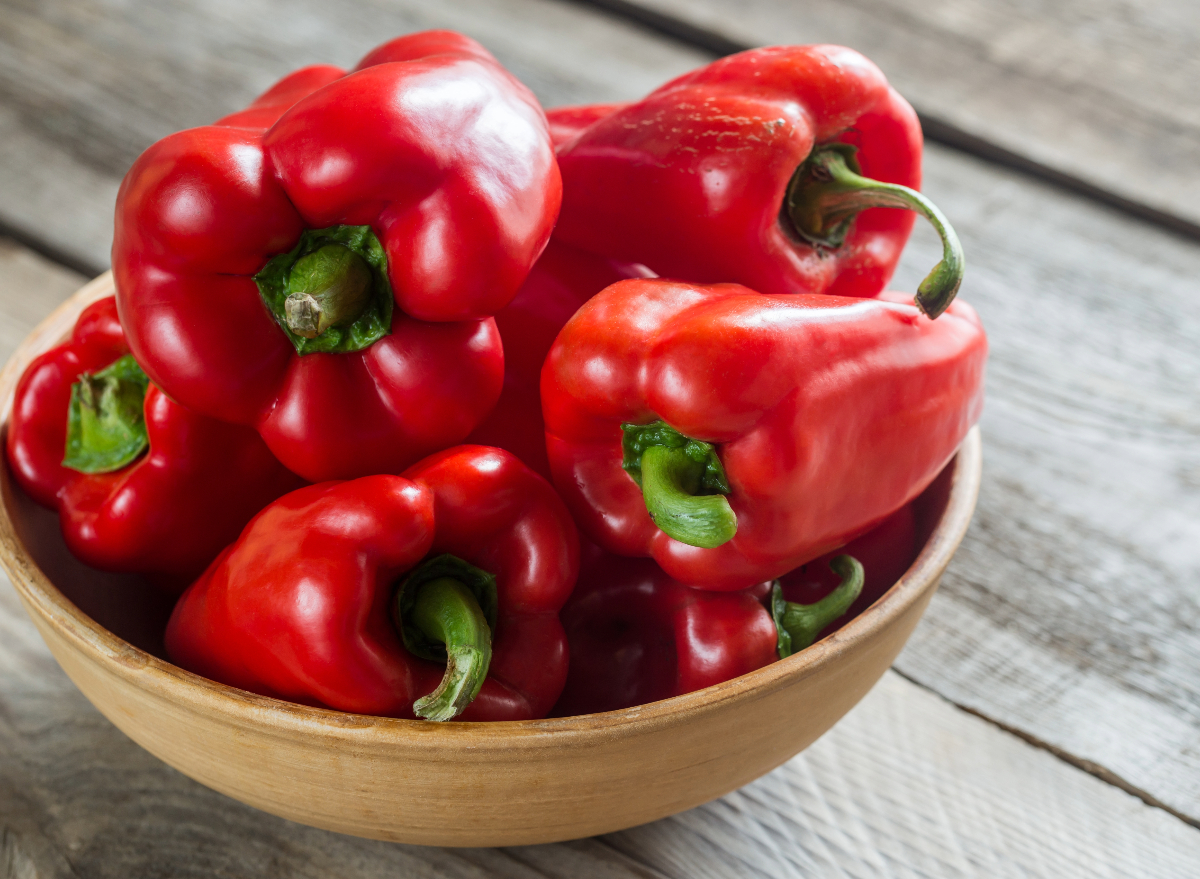
From your parents when you were young to health influencers on social media, you've likely been told your entire life to eat your vegetables. It's no wonder, considering vegetables provide essential nutrients for good health, like fiber for excellent digestion and vitamins and minerals for disease prevention, heart health, and keeping you hydrated. And among these health-promoting benefits of eating vegetables is a lesser-known side effect: weight loss. To learn more about the weight loss potential of getting your daily servings of veggies, we spoke with Trista Best, RD, a registered dietitian with Balance One Supplements, who shares the 10 best low-carb vegetables for weight loss.
What makes these low-carb veggies a secret weapon for weight loss is their nutrient density. They're fiber-rich and low in energy, which research shows can keep you fuller longer, preventing overeating and excessive calorie intake. Next time you're whipping up a salad or stir-fry, take heart knowing that you're nourishing your body with essential vitamins and minerals and supporting your weight loss goals with these nutrient-packed veggies.
Read on to uncover Best's 10 best low-carb vegetables for weight loss to start melting away extra pounds. And up next, don't miss The Best Low-Calorie Breakfasts at 10 Major Restaurant Chains.
Spinach
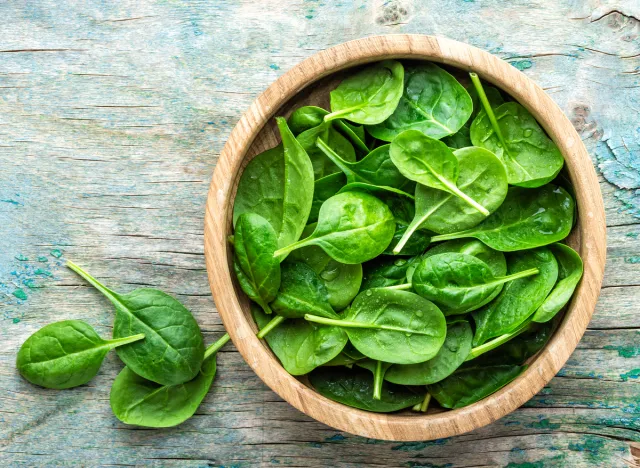
Not only is spinach low in carbs and calories (27 calories per 100-gram serving), but it's also rich in vitamins A and K to support bone and skin health. In addition, it's an excellent source of non-heme iron to keep your energy levels up.
Whether sautéed, added to salads, or blended into smoothies, spinach is a versatile and delicious way to bulk up your meals with minimal carbs. Best tells us, "Low in carbs and calories, spinach is rich in vitamins A and C, as well as iron and calcium. It's versatile and can be added to salads, smoothies, or cooked dishes."
Broccoli
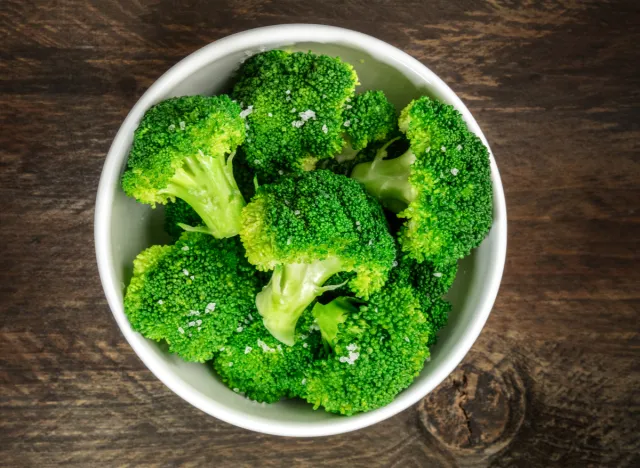
This cruciferous vegetable is a nutritional powerhouse. Bursting with fiber, vitamins C and K, and folate, broccoli supports immune function and can help reduce your cancer risk. "Packed with fiber, broccoli is low in carbs and high in vitamins C and K. It also contains compounds with potential health benefits," says Best.
The versatility of broccoli makes it a fantastic addition to stir-fries and roasted dishes or simply enjoyed raw as a crunchy snack.
Cauliflower
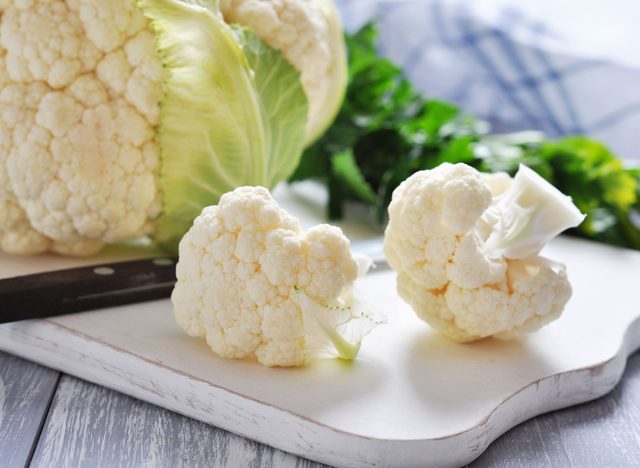
Another tasty, versatile veggie, cauliflower is low in the carb department, and it's an excellent source of vitamins C and K, Best shares. You can count on cauliflower to support your immune health while providing a mild flavor and adaptable texture, making it a fantastic substitute for higher-carb ingredients like rice or potatoes.
Zucchini
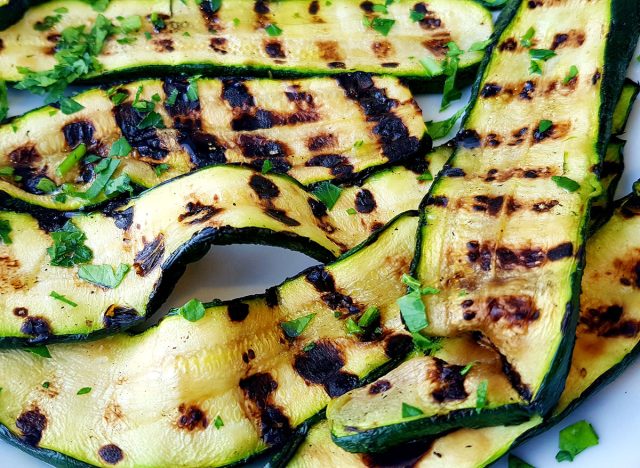
With its high water content, zucchini is a hydrating and nutritious member of the squash family. Whether you prefer it spiralized into noodles, incorporated into baking goods, or simply sautéed with herbs, zucchini makes a refreshing addition to your weekly menu.
"Low in carbs and calories, zucchini is a great addition to salads or can be spiralized into noodles as a low-carb pasta alternative," states Best.
Asparagus
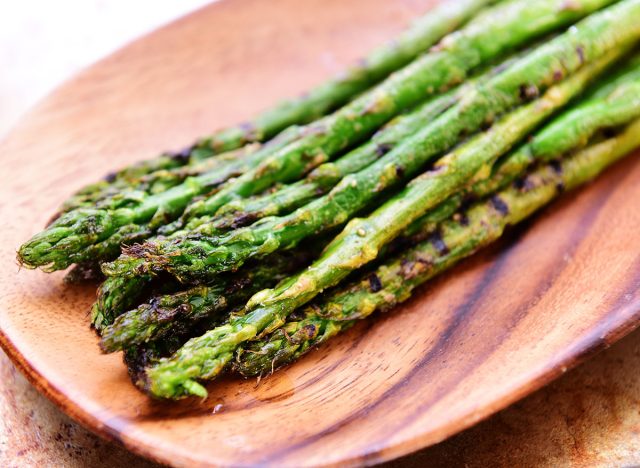
"Asparagus is low in carbs and provides a good amount of fiber, folate, and vitamins A and K. It's also rich in antioxidants," explains Best. Asparagus is a nutrient-rich, low-carb vegetable with a distinct earthy flavor and tender texture. Packed with plenty of vitamins, asparagus can boost your immune system. In addition, this veggie contains potassium, which research correlates to better bone health.
Grill it, roast it, or sautée it—regardless, asparagus provides a flavorful and low-carb side dish that pairs well with various proteins.
Bell Peppers
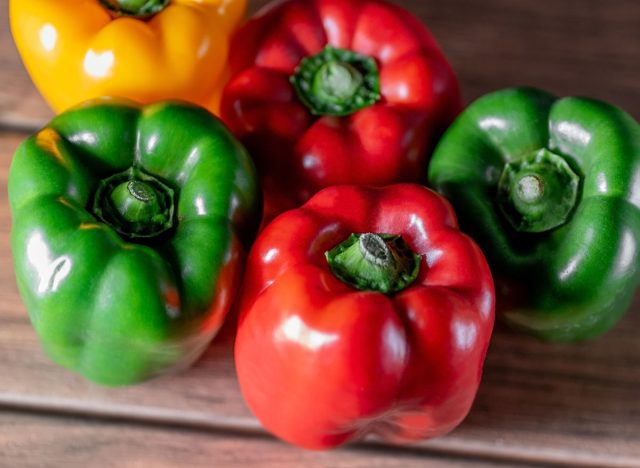
Whether sliced for a crunchy snack, added to salads, or stuffed with lean proteins (like these healthy stuffed pepper recipes), bell peppers are a delicious way to elevate your low-carb vegetable game.
"Bell peppers, especially the colorful ones, are relatively low in carbs and high in vitamin C," Best explains. "They add flavor and color to dishes without adding many calories."
Cabbage
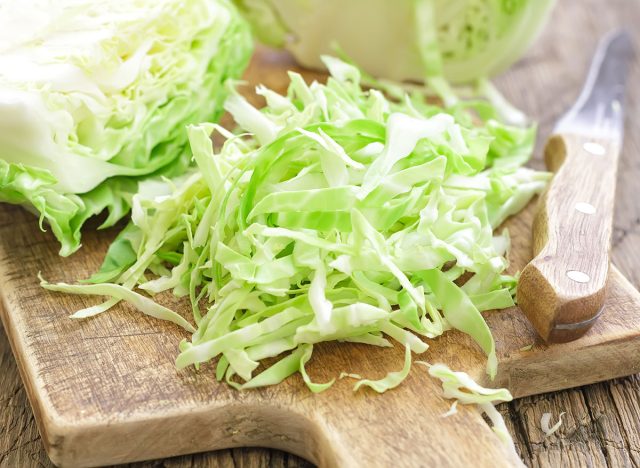
With its high fiber content, cabbage supports digestive health and provides a satisfying element to various dishes. You can use it to make slaws, sautée it and toss it into rice bowls, or use it as a wrap for a low-carb and nutrient-dense option.
Best adds, "Cabbage is low in carbs and calories, offering fiber, vitamins C and K. It can be used in salads, stir-fries, or as a wrap substitute."
Avocado
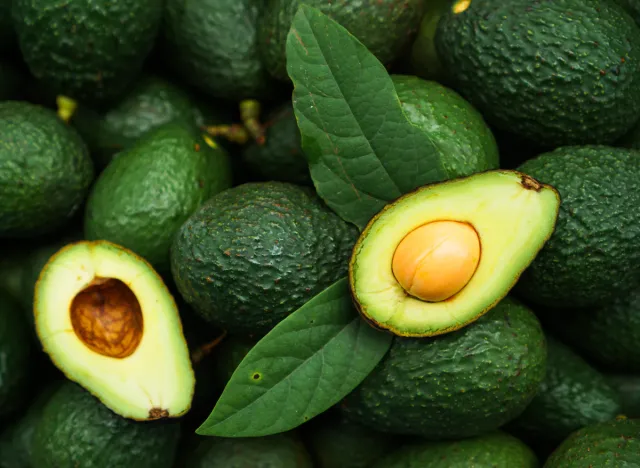
Everyone knows avocados are an excellent source of healthy fats. But they're also a great low-carb option high in fiber and potassium. Plus, research links avocado consumption to a decreased likelihood of weight gain and greater feelings of fullness.
"While technically a fruit, avocados are low in carbs and high in healthy fats. They provide a creamy texture and are rich in potassium, fiber, and vitamins," says Best.
Kale
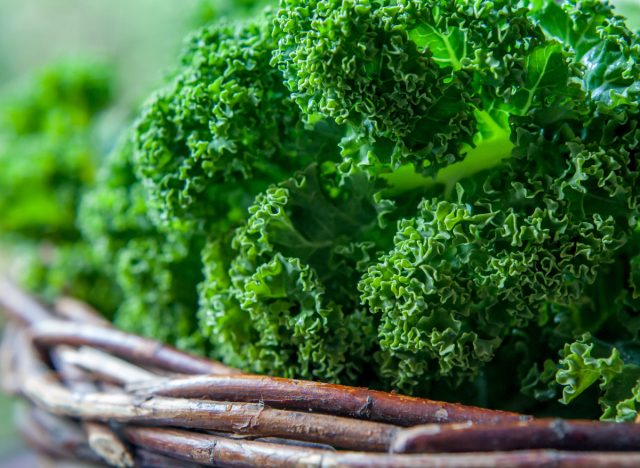
Kale is a leafy green veggie that's bursting with nutrients and health benefits. Its firm texture makes an excellent base for salads and smoothies, or it can even be crisped into kale chips for a crunchy snack.
"Kale is a nutrient-dense leafy green that's low in carbs and high in vitamins A, C, and K. It's also a good source of antioxidants," states Best.
Brussels Sprouts
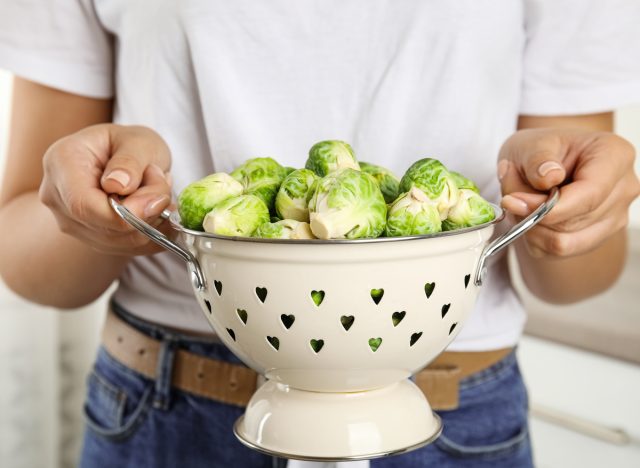
Another low-carb member of the cruciferous vegetable family, Best explains, "Brussels sprouts are low in carbs and high in fiber, vitamins C and K, and antioxidants." Whether you like them roasted, sautéed, or shaved into salads, Brussels sprouts offer a robust flavor and nutritious addition to meals.
- Source: Therapeutic Benefits and Dietary Restrictions of Fiber Intake: A State of the Art Review
- Source: Vitamin K
- Source: Vitamin A in Skin and Hair: An Update
- Source: Broccoli: A Multi-Faceted Vegetable for Health: An In-Depth Review of Its Nutritional Attributes, Antimicrobial Abilities, and Anti-inflammatory Properties
- Source: Sulforaphane in broccoli: The green chemoprevention!! Role in cancer prevention and therapy
- Source: Adaptogenic property of Asparagus racemosus: Future trends and prospects
- Source: The association of potassium intake with bone mineral density and the prevalence of osteoporosis among older Korean adults
- Source: Avocado Intake, and Longitudinal Weight and Body Mass Index Changes in an Adult Cohort









